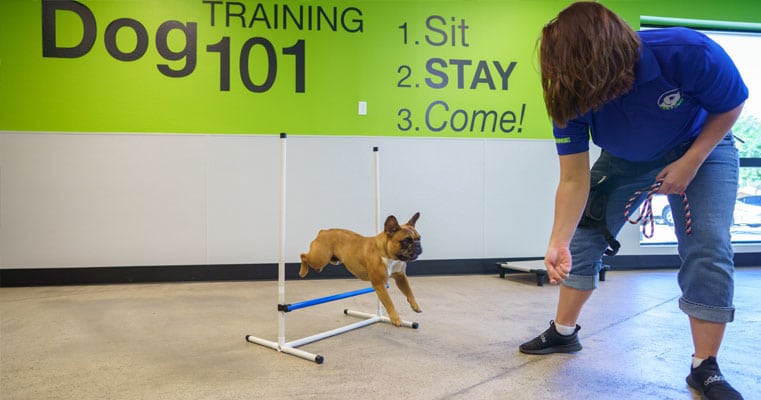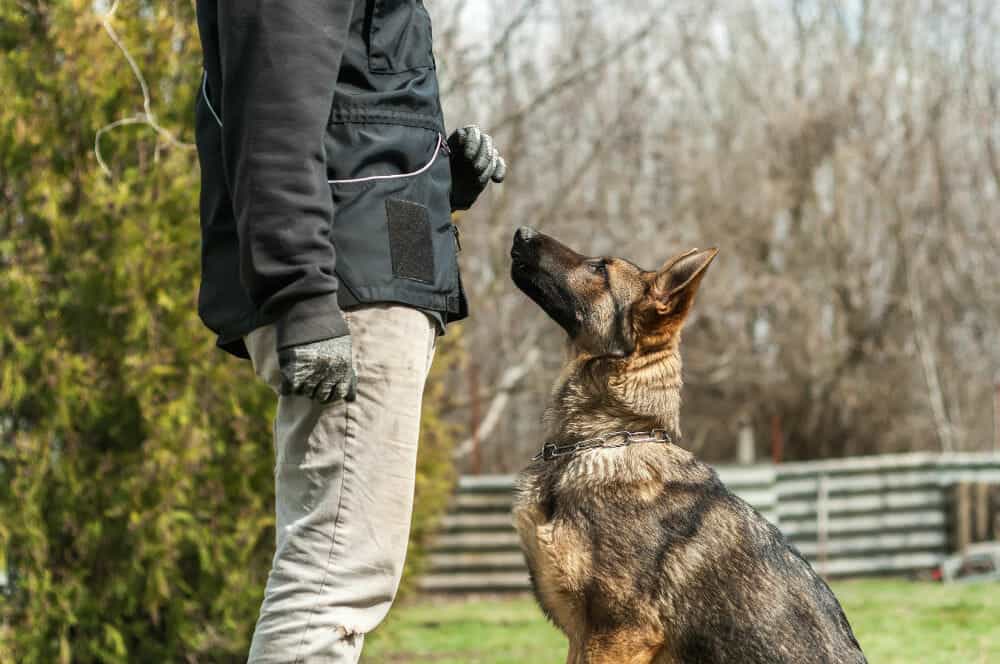Dog Training Charlotte NC: Your Path to a Well-Behaved Dog
Unlock Your Pet dog's Possible: Proven Pet Dog Training Techniques for Success
Efficient pet training is a nuanced procedure that rests on recognizing canine actions and using scientifically backed strategies. Dog training. By incorporating positive reinforcement, establishing clear commands, and focusing on socializing, dog proprietors can grow an effective partnership with their pet dogs. Nonetheless, obstacles usually emerge that call for customized options and an individual technique. Discovering these verified techniques reveals not just the possibility for behavioral improvement but additionally the much deeper bond that can be formed in between proprietor and canine. What important strategies must be taken into consideration to genuinely unlock your dog's possibility?
Comprehending Canine Actions
Understanding pet behavior is necessary for efficient training and cultivating a favorable relationship between pet dogs and their proprietors. An extensive grasp of canine body movement, articulations, and social interactions is important for recognizing their demands and emotions. Canines interact primarily with non-verbal signs; for example, a wagging tail might show excitement, while pinned ears can signify fear or submission.

In addition, ecological variables play a substantial function in forming a canine's behavior. Changes in routine, brand-new environments, or the existence of unknown individuals can lead to stress or anxiousness in pets. Acknowledging these triggers allows owners to mitigate damaging responses and develop appropriate training approaches.
Inevitably, a deep understanding of pet dog behavior lays the structure for effective training techniques, improving both actions and the general bond between the pet and its proprietor. dog training near me. This knowledge is crucial for cultivating a well-adjusted, pleased canine companion
Favorable Reinforcement Strategies
Efficient training counts greatly on positive support techniques, which have actually been shown to generate significant cause shaping wanted habits in dogs. This technique involves compensating a canine for showing particular actions, thus raising the probability that these actions will be duplicated. Incentives can take numerous kinds, consisting of treats, praise, toys, or play, depending on what motivates the private pet dog.

It is necessary to progressively eliminate rewards as the dog finds out the habits, transitioning to recurring support. This technique keeps the behavior over time while protecting against dependence on constant incentives. By concentrating on positive support, fitness instructors can cultivate a relying on partnership with their pet dogs, promoting a healthy and balanced and cooperative training setting that improves total obedience and performance.
Developing Constant Commands
A fundamental facet of successful dog training is the establishment of regular commands. Consistency in commands is crucial for efficient communication between the fitness instructor and the dog. When commands are consistent, dogs discover to link particular words with wanted behaviors, which speeds up the training procedure and enhances understanding.
To develop constant commands, it is essential that all family participants use the exact same terms and motions. If one individual makes use of "sit" while one more states "rest down," it can create complication for the pet. Select clear, distinct words for commands and make sure every person involved in the dog's training follows these selections.
In addition, rep is key. Reinforce commands via you can find out more constant practice, guaranteeing that the canine gets enough possibilities to react correctly. When a dog successfully adheres to a command, prompt positive reinforcement should comply with. This might be in the kind of deals with, appreciation, or play, strengthening the link in between the command and the activity.
Finally, look what i found hold your horses. Establishing consistent commands takes time and initiative. With devotion and quality, you will certainly assist your dog develop a strong understanding of expectations, inevitably bring about a mannerly buddy.
Socialization and Direct Exposure
Mingling a pet dog is necessary for promoting a positive and well-adjusted friend. This process involves revealing your canine to a variety of settings, people, and other pets to develop their social abilities and adaptability. Early socializing, ideally in between the ages of three to fourteen weeks, is essential, as it prepares for a pet dog's future behavior.
Throughout socialization, purpose to supply favorable experiences in different settings, such as parks, hectic streets, and homes with other family pets. Introduce your pet dog to various stimuli, including noises, views, and scents, guaranteeing that each experience is rewarding. This direct exposure helps minimize worry and stress and anxiety, paving the way for a more resistant canine.
Involving in regulated team play sessions with other canines can likewise boost social abilities, teaching your pet dog ideal interactions and boundaries. Prioritizing socialization will considerably contribute to your canine's total joy and actions throughout their life.
Conquering Common Educating Difficulties

An additional regular concern is diversion. Dogs might struggle to concentrate in strange or hectic setups. Gradually desensitize your pet dog to distractions by beginning training in a silent atmosphere and gradually introducing more stimulations as they become efficient (dog training near me). Favorable support techniques, such as treats and appreciation, can keep motivation and focus.
Furthermore, behavior concerns like jumping or excessive barking can end up being discouraging. Address these by educating alternative behaviors, such as sitting smoothly when greeting guests. Consistency and persistence are critical; reinforce wanted actions continually and avoid abuse, which can lead to confusion.
Lastly, recognize that each dog is distinct, and training timelines may vary. Tailor your approach to your dog's individual needs, and seek professional guidance if necessary. With willpower and the appropriate strategies, getting over these obstacles can bring about a trained, delighted canine buddy.
Final Thought
To conclude, unlocking a dog's possible demands a detailed technique that integrates an understanding of canine behavior, the application of favorable support methods, and the establishment of regular commands. Early socializing and exposure to diverse settings additionally enhance a dog's flexibility and self-confidence. By dealing with common training obstacles with customized strategies and patience, a participating and harmonious relationship in between canine and trainer can be promoted, ultimately causing a well-behaved friend with the ability of thriving in numerous circumstances.
Reliable pet dog training is a nuanced process that hinges on understanding canine actions and employing medically backed techniques.Recognizing canine actions is vital for effective training and promoting a favorable connection in between canines and their proprietors.Effective training depends greatly on positive support strategies, which have been revealed to yield considerable outcomes in shaping preferred actions in dogs. When commands are uniform, pets learn to connect details words with desired habits, which increases the training process and improves understanding.
In verdict, unlocking a canine's prospective demands a comprehensive technique that includes an understanding of canine behavior, the application of positive reinforcement methods, and the facility of regular commands.